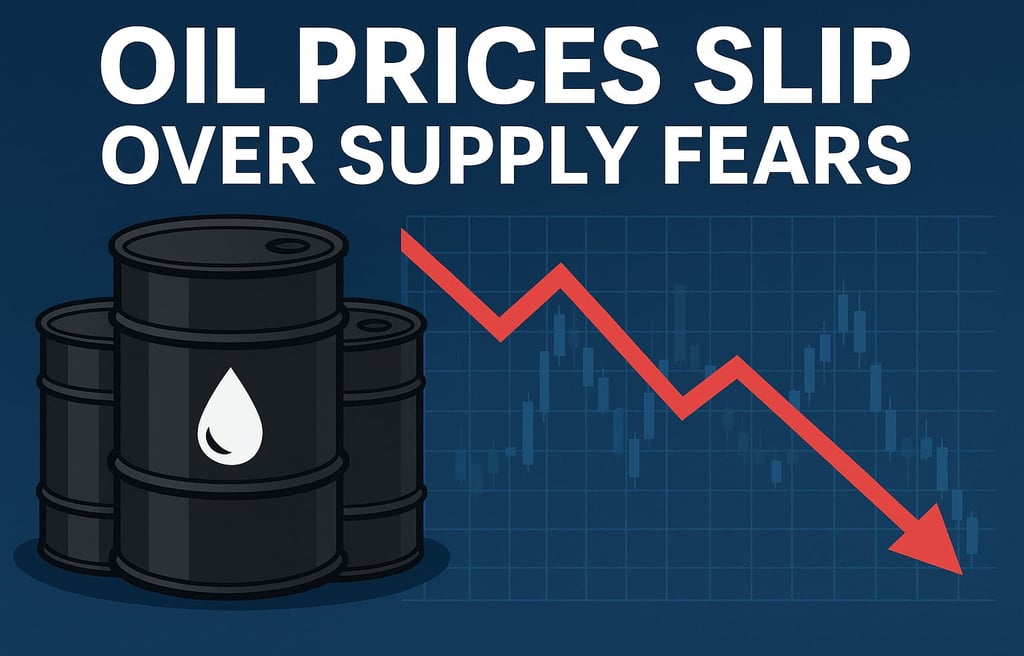Oil Prices Fall on Oversupply Fears and Weak Global Demand | October 2025 Energy Market Update
Oil prices drop as oversupply fears and slowing demand weigh on global markets. Experts warn of a potential supply glut by 2026.
Raja Awais Ali
10/20/20252 min read


Oil Prices Slip Amid Growing Supply Glut Concerns and Weak Global Demand
Global oil prices fell on Monday as fears of a growing supply glut and weakening demand weighed heavily on investors. The International Energy Agency (IEA) warned in its latest report that global oil supply could exceed demand in 2026, triggering renewed market volatility and concerns over energy oversupply.
According to market data, Brent crude slipped 0.4% to $61.05 per barrel, while West Texas Intermediate (WTI) dropped to $57.33 per barrel, marking the third consecutive day of decline.
Causes Behind the Decline
1. Rising Production:
Major oil producers, particularly members of the Organization of the Petroleum Exporting Countries (OPEC) and its allies, have increased output over recent weeks, leading to a surge in global supply.
2. U.S.–China Trade Tensions:
Renewed tensions between the world’s two largest economies have slowed global trade and manufacturing. As a result, energy consumption has fallen, pushing oil prices down further.
3. Demand–Supply Imbalance:
The basic market rule remains clear — when supply outpaces demand, prices drop. The imbalance has grown due to economic uncertainty and sluggish industrial activity.
Impact on Gulf Markets
The drop in oil prices immediately rippled through Gulf stock exchanges. Markets in Saudi Arabia, Dubai, Abu Dhabi, and Qatar saw mixed reactions, with investors shifting to a more cautious stance.
Saudi energy-linked shares dipped slightly, while Dubai and Qatar recorded minor losses. Analysts warn that if prices continue to fall, Gulf nations could face mounting fiscal pressure and potential budget adjustments.
Global Forecast
The IEA cautioned that if current production trends persist without cuts, a full-scale “supply glut” could emerge by 2026. Analysts urge producing nations to reduce production levels to stabilize global oil markets and prevent a price collapse.
Oil market experts also predict that without coordinated action from OPEC+, crude prices could fall below $55 per barrel within months, impacting both producer economies and global trade stability.
Broader Economic Implications
Falling oil prices don’t just affect energy markets — they influence inflation rates, trade balances, investment flows, and geopolitical strategies.
Producer nations could face shrinking revenues, higher fiscal deficits, and reduced foreign reserves. Conversely, importing countries might benefit temporarily from lower energy costs, but the overall slowdown in global demand reflects a weakening economic outlook.
Conclusion
Analysts agree that the current oil market slump represents a classic “supply versus demand” imbalance. Without immediate production control measures, the world could face another major oil crisis in 2026. The coming months will be crucial in determining whether energy producers can restore market stability and investor confidence.
Stay informed with the latest national and international news.
© 2025. All rights reserved.